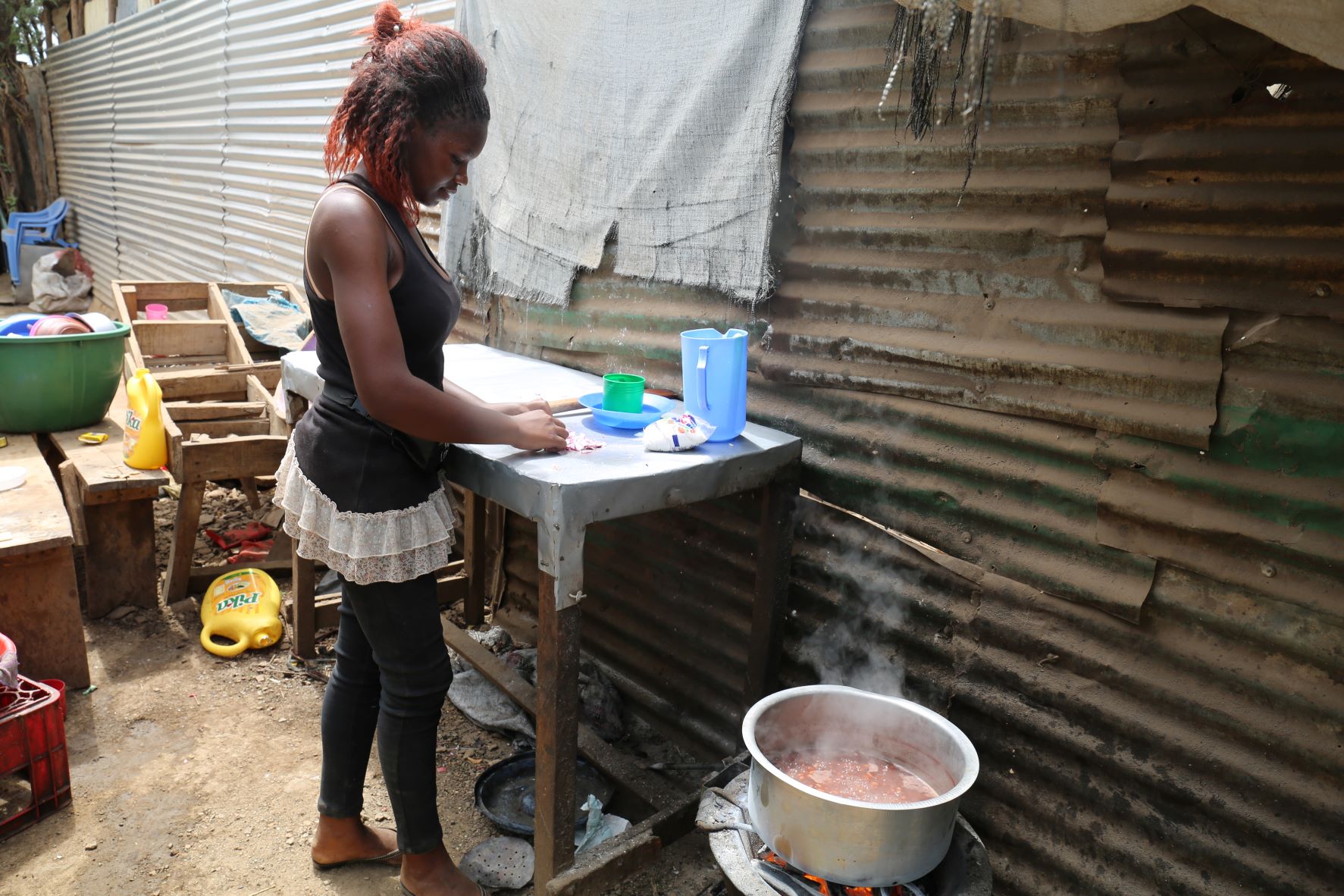This piece first appeared in Business Daily. Image: Refugee Sharon Ayuma uses an improved cooking stove in Kakuma refugee camp, where energy access is supported by aid agency SNV.
The number of refugees in East Africa has risen by 230% since 2011, the UN reports. And with climate change bringing more instability and conflict, that number will only grow. Among the many challenges refugees face is lack of access to clean and affordable energy.
Refugee camps are buzzing with entrepreneurship and ambition – but without energy to power up these plans, a better life will stay out of reach for many. Yet when displaced people do have energy, they are more likely to take part in and (benefit from) Africa’s economic development.
Key players working on the issue – from African politicians and businesses to Western donors and investors – will gather in Kigali on 16 May at the Global Platform for Actions’ Humanitarian Energy Conference 2022. There they will work towards an inclusive and ambitious vision for progress.
What does this mean in practice? For starters, it means governments doing what they can to give stability to refugee settlements. Threats of closure hang over many refugee camps, such as Dadaab in Kenya, 30 years old and home to about 220,000 people. This discourages investment in the energy infrastructure and projects that would massively improve people’s lives.
While the challenges of hosting refugees can be enormous, forcing them to move yet again is neither humane nor realistic. Surely it’s better to unlock the huge potential carried within refugee communities.
Meanwhile, donors and investors – often representatives of the nations that have created the climate crisis – should step up support for inclusive, African-led solutions that deliver dramatic and lasting impact. These solutions could include energy systems like solar-powered microgrids owned by refugees themselves, or training and finance that allows people to make a living through businesses powered by renewable energy.
Many innovators are already creating impact, and are ready to scale up their work. They include Solar Freeze. This Kenyan-owned-and-run company offers cooling for food and medicine in Kakuma refugee camp. Its sustainable and affordable service has supported health clinics and small businesses, allowing people to rent cold storage, and 100 women and young people have received free technical training.
Kakuma Ventures, another of the camp’s innovators, is supporting a growing network of entrepreneurs running solar-powered wifi hubs. Kakuma Ventures supplies training and equipment, which allows entrepreneurs to create a new income stream – and help their neighbours get online for the first time.
Elsewhere, innovators show how clean energy brings people together. Power Trust Uganda Ltd supports solar-powered business hubs in the Kiryandongo refugee camp – containers offering everything from hairdressing, phone charging and computer access to milling for agricultural products. The hubs are run by groups of local residents, and provide a centre for training and nurturing business opportunities.
More innovators will be revealed at the conference, where Ashden will announce the shortlist for the 2022 Ashden Award for Energising Refugee Livelihoods.
Worldwide, there are more than 26 million refugees (with many more people forced to flee within in their own countries). Of those living in refugee camps, 90% do not have electricity and 80% rely on firewood for cooking.
And while Africa’s energy access challenges extend far beyond refugees, progress among this particularly vulnerable group could create momentum for change across the whole continent.
This November global leaders will head to Egypt for COP27 – a crucial international climate summit. But past COPs have seen energy access pushed to the fringes, attracting little in the way of publicity or pledges. Even though a low-carbon future depends on planting the seeds of clean, affordable energy in every country and village around the world.
We know that it is possible to spark new livelihoods with clean energy, even in the challenging environment of refugee camps. So surely it is time for the governments and bodies driving climate change talks to put access to energy at the heart of our global journey to a low-carbon future.

